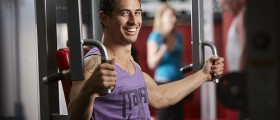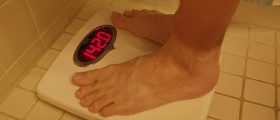
Factors Affecting Calorie Burning
How many calories you burn while dieting and exercising depend on your unique physiology and metabolism. There is a specific rate in which your body processes nutrients and burns calories. Individuals with low metabolic rates, but high food consumption, tend to put on weight much faster. So, if your metabolic rate is low, you have to work out harder to burn calories.
Additional significant aspects that affect calorie combustion are the levels of straining that a physical activity puts on your body and the upsurge in heart rate that it causes. With a higher heart rate, you will burn your calories faster, and with the lower heart rate – slower. Exercises that can increase your heart rate are known as cardio exercises. Such exercises are running, rowing, swimming, bicycling, etc.
Calculating Calories Burned In a Day
It would be a smart idea to use an online calculator to calculate your burned calories. If you enter time spent in doing workouts, and choose the type of workout, program will calculate calories you burned during that workout. This result is based on facts of typical values of calories burned and some calculation formulas established on the theory of 'Metabolic Equivalent' of a physical activity.
Weigh Yourself Periodically
In order to calculate calories combusted during a long period of exercise, you should weight yourself once in a while. This way, you can indirectly monitor the calorie combustion, since your physical work will result in weight loss. Of course, this measure is just an approximate assessment of your calorie combustion.
Consulting a Physical Trainer
Physical trainer can give you exact values of burned calories, of course, with the help of appropriate instruments. He or she can calculate your Basal Metabolic Rate and Body Mass Index, and then suggest some changes in your exercises and diet. He or she can also create a program for a more efficient weight loss, based on the measures he or she gained.

















Your thoughts on this
Loading...